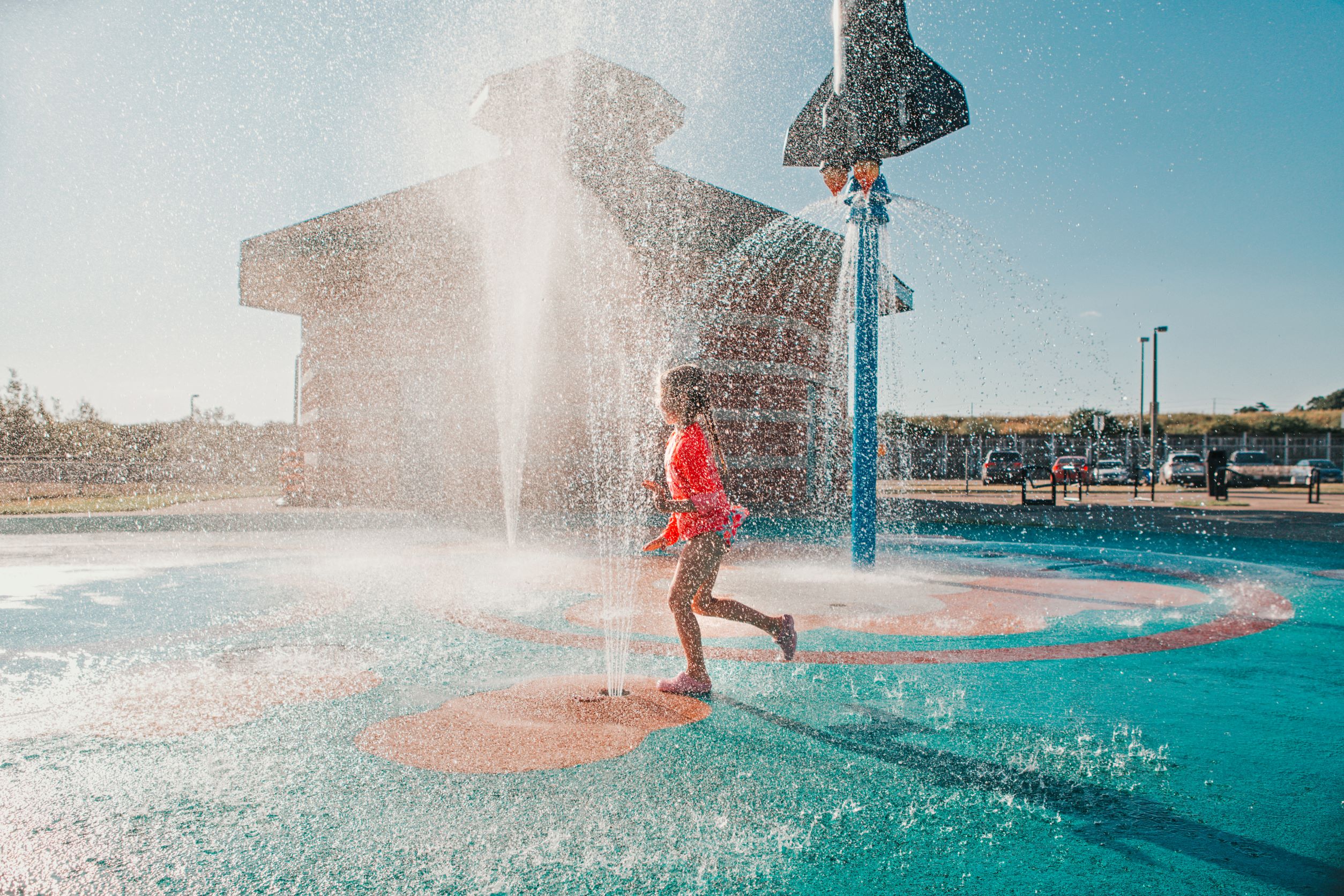Boy dies from rare 'brain-eating' amoeba found in splash pad at Texas park
The boy developed the rare infection after visiting a park in Arlington, Texas.

A boy in Arlington, Texas, has died from a rare and deadly brain infection he likely contracted from a city splash pad, health officials say.
The boy, whose name and age were not released, was hospitalized at Cook Children's Medical Center in Fort Worth, Texas, on Sept. 5, where he was diagnosed with primary amoebic meningoencephalitis (PAM), a devastating brain infection caused by a single-celled organism called Naegleria fowleri, according to a statement from the City of Arlington Office of Communication. He died at the hospital on Sept. 11, the statement said.
N. fowleri are typically found in bodies of warm fresh water, such as lakes, rivers and hot springs, Live Science previously reported. But in the boy's case, officials determined that the only possible sources for his exposure to the amoeba were either water from his home or water from a splash pad at Don Misenhimer Park in Arlington, the statement said.
Related: 5 key facts about brain-eating amoebas
Water samples collected from the park's splash pad, which sprays water up from the ground, were sent to the Centers for Disease Control and Prevention (CDC) following the boy's diagnosis. On Sept. 24, the agency confirmed that the samples tested positive for N. fowleri, and that the splash pad was the likely source of the infection, the statement said.
Infections caused by N. fowleri are extremely rare — between 1962 and 2019, just 148 cases were reported in the United States, according to the CDC. But when infections occur, they are almost always fatal, with less than a 3% survival rate, Live Science previously reported. The majority of PAM cases occur in southern states, with more than half the total U.S. cases reported in Texas and Florida, according to the CDC. Infections happen when contaminated water goes up the nose — people can't become infected from swallowing contaminated water, according to the CDC.
The vast majority of people are infected while swimming in warm freshwater lakes and rivers. Of the 148 U.S. cases, just six have been linked with drinking water systems, according to the CDC. One of those cases was a 4-year-old boy in Louisiana who died of the infection in 2013 after using a lawn Slip 'N Slide, Live Science previously reported.
Sign up for the Live Science daily newsletter now
Get the world’s most fascinating discoveries delivered straight to your inbox.
Almost exactly one year ago, a boy in Lake Jackson, a city near Houston, Texas, died from a PAM infection that was also linked with a city splash pad, Live Science previously reported.
There is no routine or rapid test to identify whether N. fowleri is present in water, according to the CDC. But city water systems are treated with chlorine, which kills N. fowleri when chlorine levels are above 0.5 milligrams per liter, according to a 2015 paper on a case of N. fowleri linked to tap water published in the journal Clinical Infectious Diseases. But if water systems aren't properly maintained, and chlorine levels drop, the organisms may start to grow inside the system, the paper said.
This appears to be what happened at the Arlington splash pad. Records show that employees at Don Misenhimer Park did not consistently document or conduct daily water-quality testing on the splash pad, including checking the levels of chlorine, which is required prior to opening the facility each day, the statement said. What's more, when employees did document chlorine levels that were low, they did not always record what actions were taken to bring the chlorine levels back up, the statement said. Chlorine readings were not documented on two of the three days that the boy visited the splash pad in late August and early September, and chlorine levels were documented as low one day after the boy visited the park, the statement said.
"We have identified gaps in our daily inspection program," Lemuel Randolph, Arlington's deputy city manager, said in the statement. "Those gaps resulted in us not meeting our maintenance standards at our splash pads."
The city closed all of its splash pads on Sept. 5, and they will remain closed for the rest of the year, the statement said.
The drinking water supply for the city of Arlington is not affected, officials said. The park's splash pad has a "backflow prevention device" that isolates the facility's water system from the city's water distribution system, the statement said.
Originally published on Live Science.

Rachael is a Live Science contributor, and was a former channel editor and senior writer for Live Science between 2010 and 2022. She has a master's degree in journalism from New York University's Science, Health and Environmental Reporting Program. She also holds a B.S. in molecular biology and an M.S. in biology from the University of California, San Diego. Her work has appeared in Scienceline, The Washington Post and Scientific American.
Flu: Facts about seasonal influenza and bird flu
What is hantavirus? The rare but deadly respiratory illness spread by rodents










